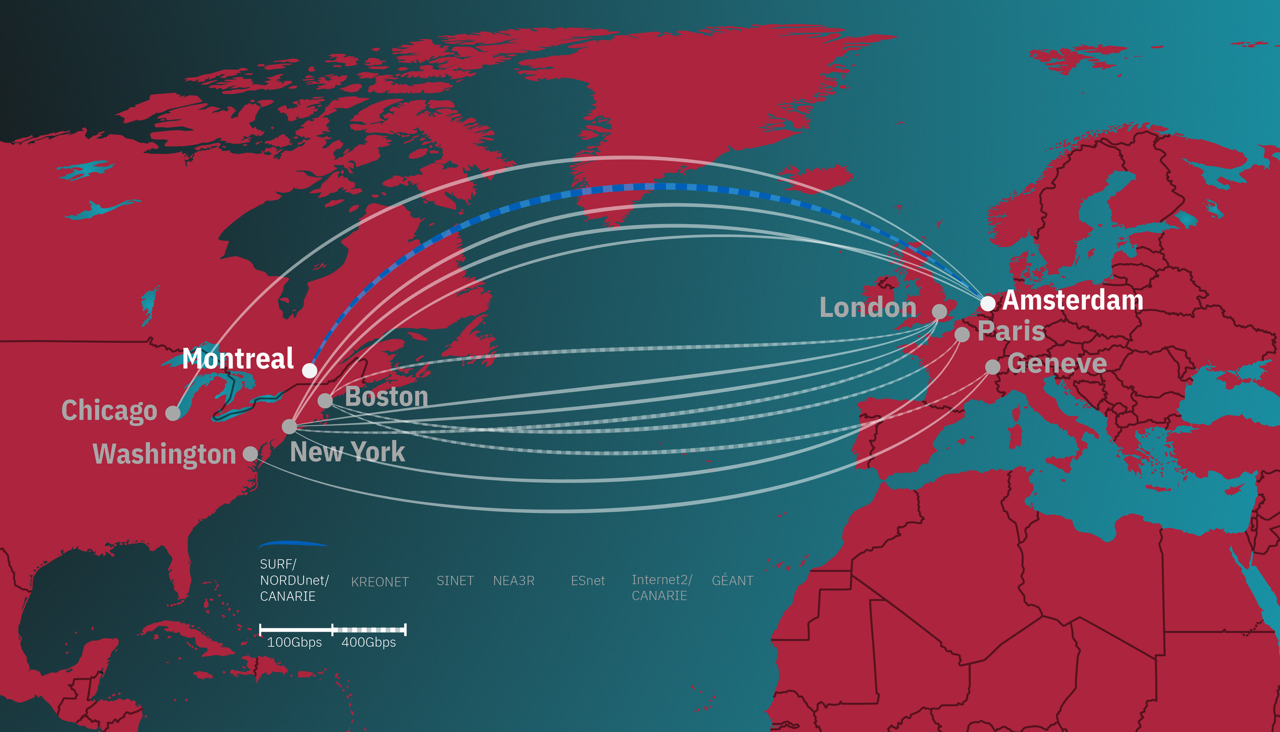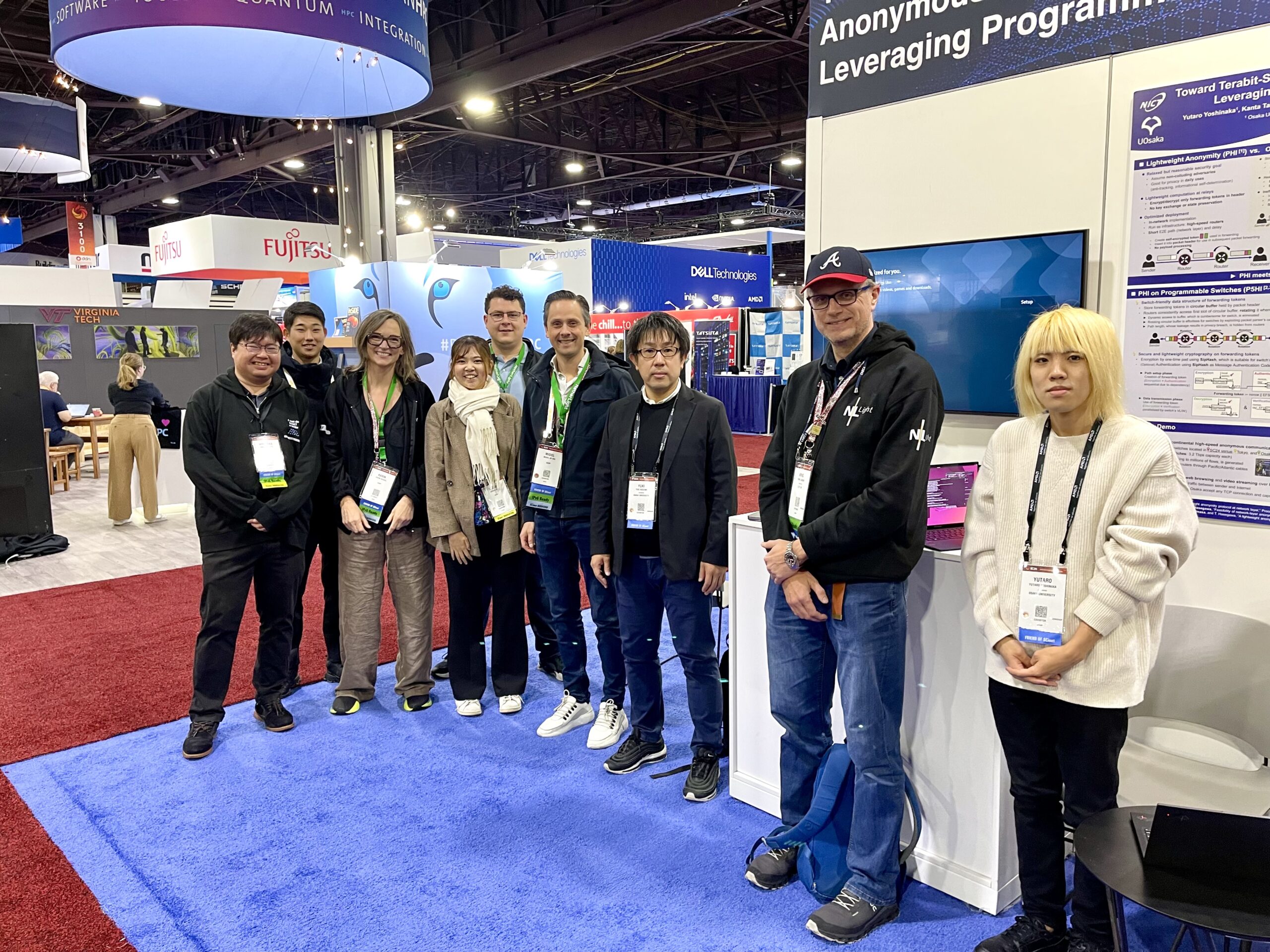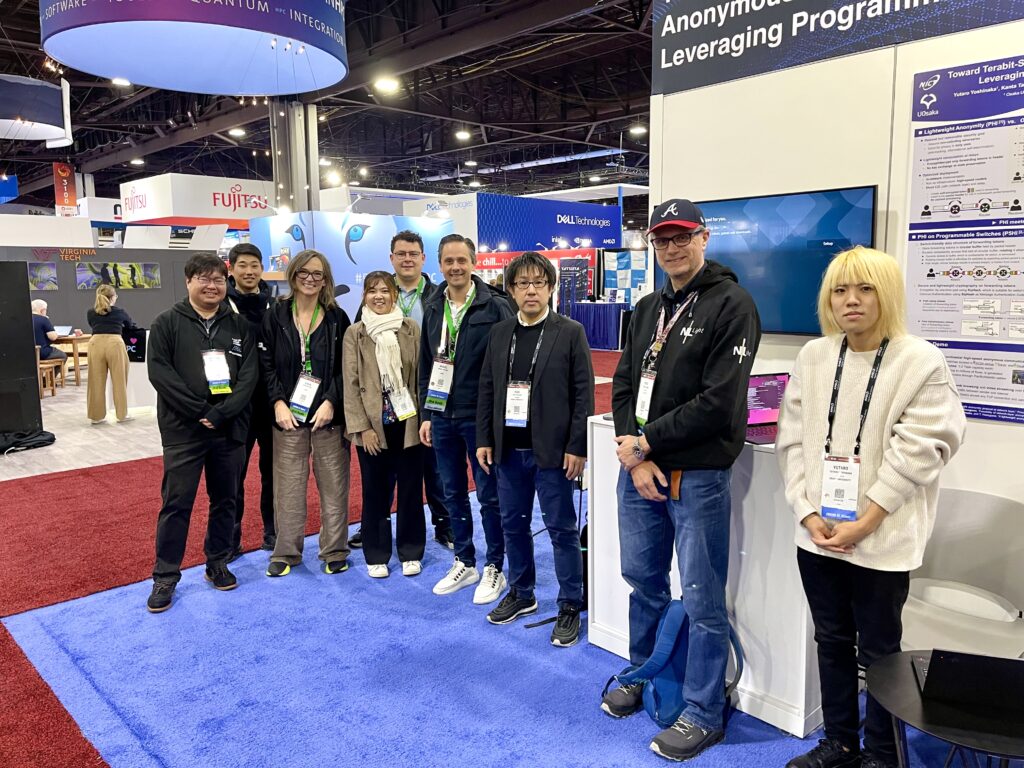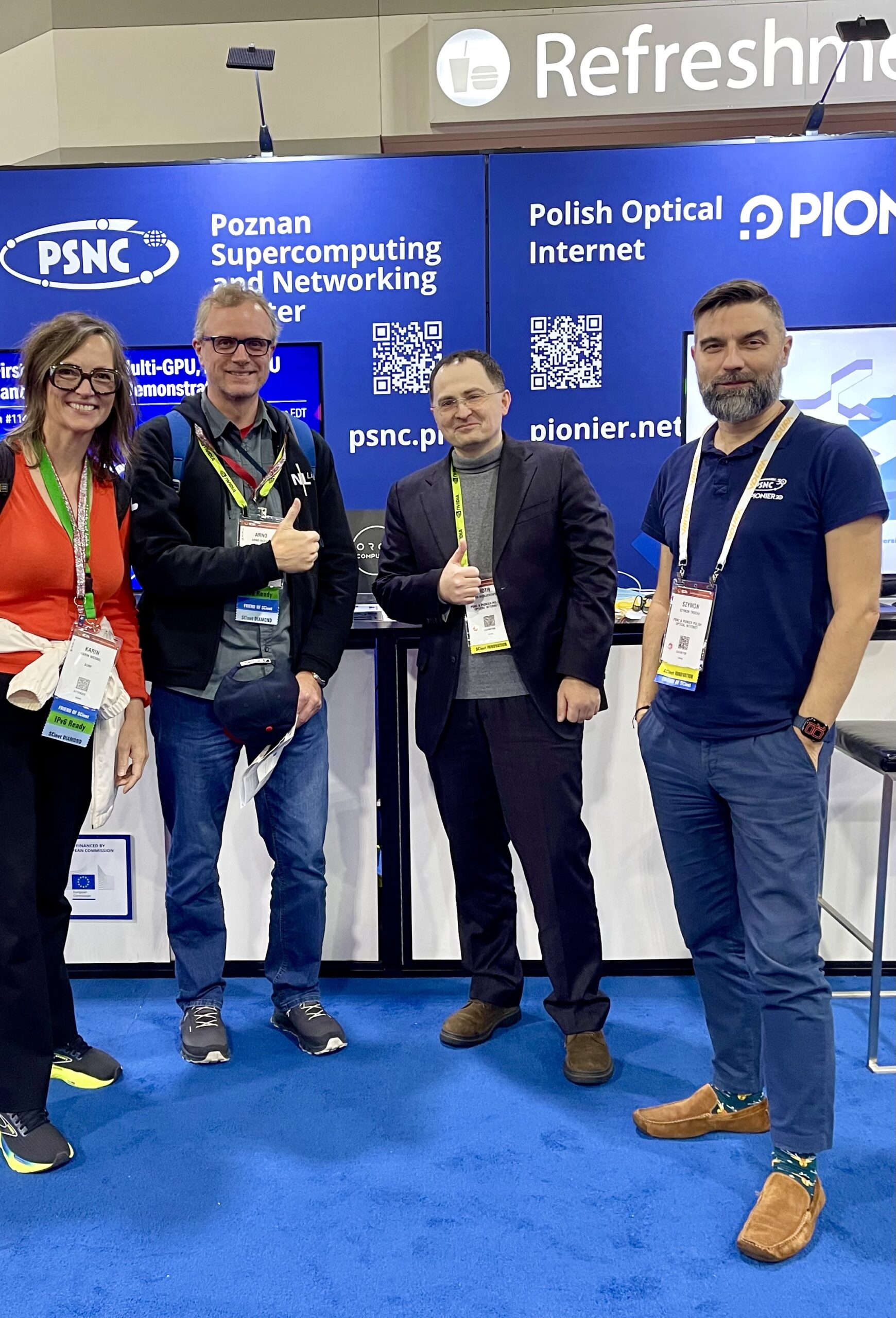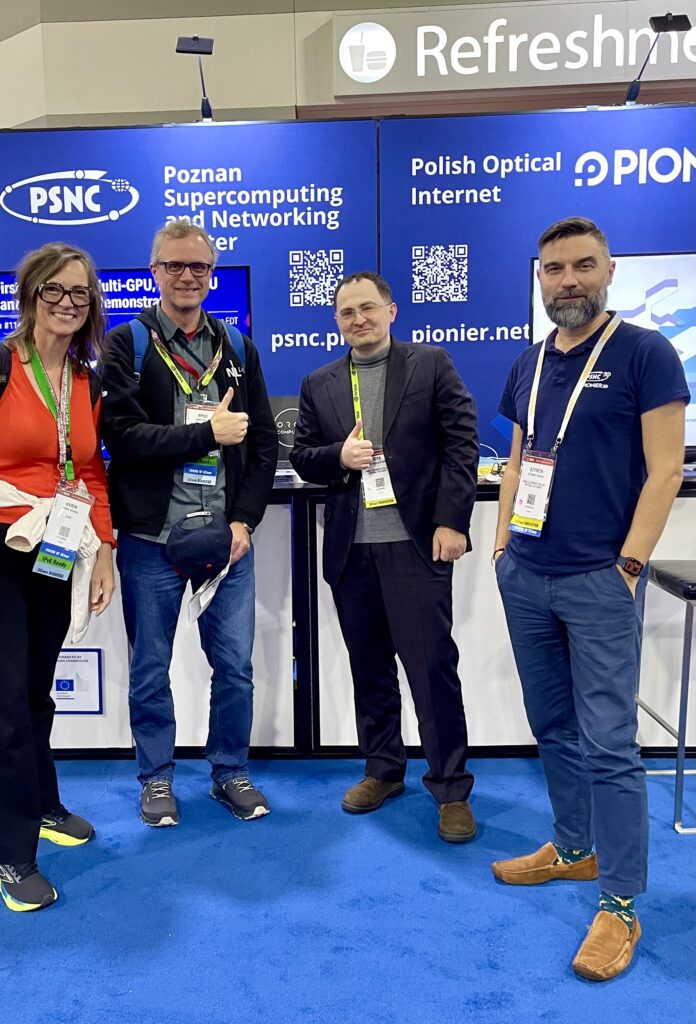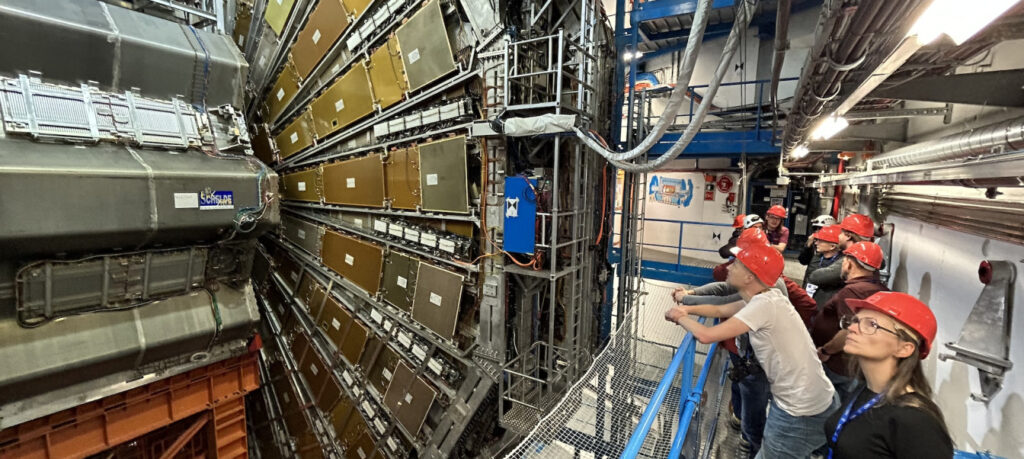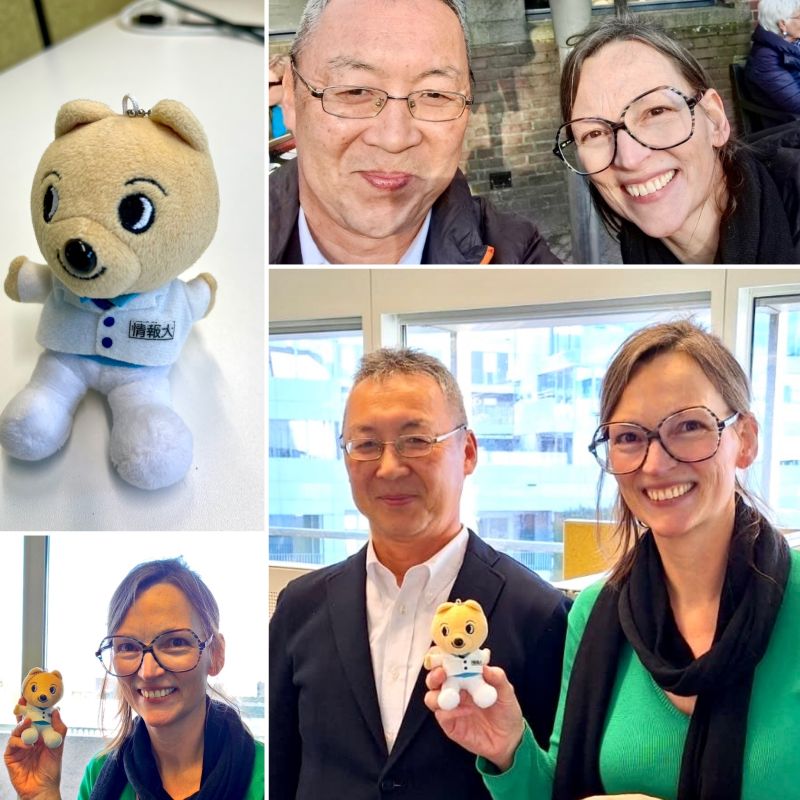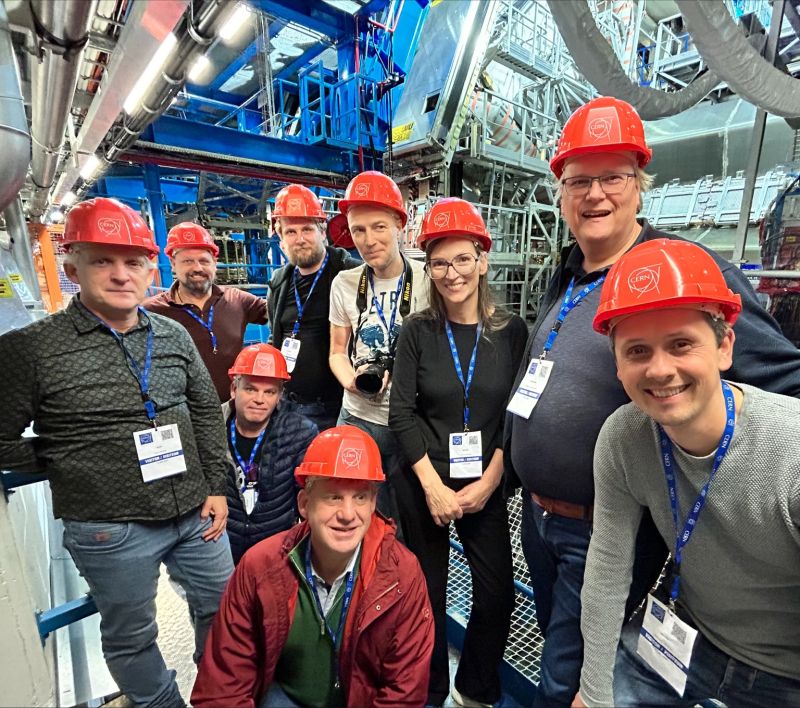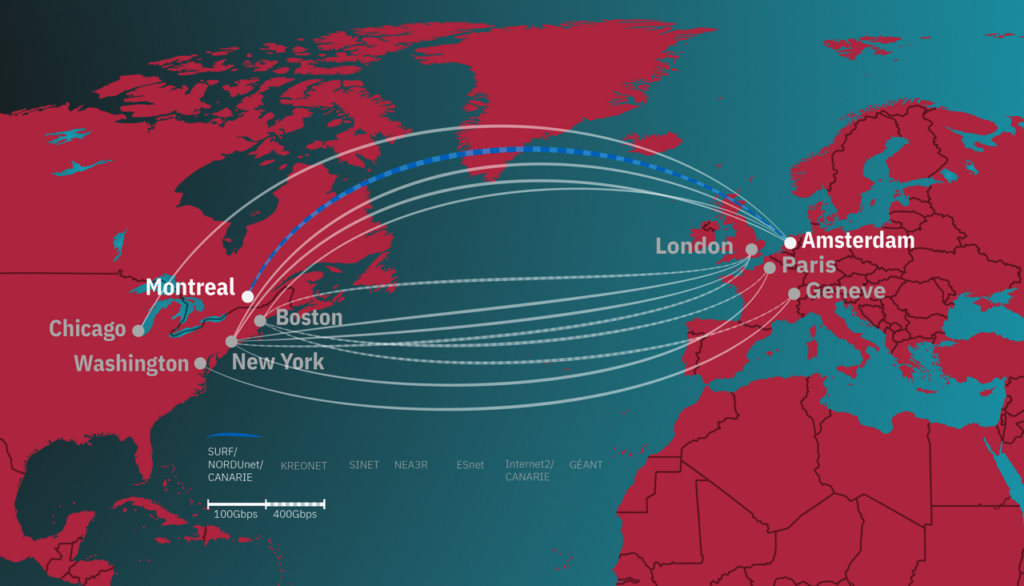
Stronger digital ties across the Atlantic
Dutch, Nordic, and Canadian research and education networks
upgrade their trans-Atlantic link to 400 Gigabits per second (Gbps) as
part of the Advanced North Atlantic (ANA) consortium.
The research and education network organizations of the Netherlands, the Nordic countries
and Canada have signed an agreement to upgrade the existing connection between
Amsterdam and Montréal from 100 Gbps to 400 Gbps, placing it among the most powerful
intercontinental connections in the world.
The Amsterdam-Montréal connection was established five years ago by SURF, the national research and education network (NREN) of the Netherlands, in collaboration with NORDUnet, the regional NREN of the five Nordic countries. With the new agreement, CANARIE – the federal partner in Canada’s NREN – joins, with the three partners contributing equally.
The Advanced North Atlantic (ANA) consortium is a joint effort of nine research and education networking organizations in North America, Europe, and Asia committed to maintaining, operating, and sharing a high-speed trans-Atlantic network infrastructure.
Partners chip in
The strength of ANA consortium lies in the contribution that each partner makes to the system, and shares this with the ANA membership to achieve a better infrastructure for all. Since all members are organizations that exist to build and operate infrastructure to accommodate the needs specific to research and education, the willingness to contribute has been high.
“This upgrade is a natural response to the increasing demand of research and education data and services exchange across the Atlantic Ocean, for example research enabled by the Large Hadron Collider (LHC) and Square Kilometer Array (SKA) instruments. The ANA consortium is an excellent example of the impact of partnerships on the collective good. This partnership enables our three national research and education networks to do more together than we can do on our own, maximizing the impact of our individual investments – both on the researchers in our home countries and the global science initiatives they collaborate in,” says Mark Wolff, Chief Technology Officer, CANARIE.
“The partners chip in when and where they can, but always with an eye to the capacity and redundancy of the entire system. This is one of the advantages of being in the research and education network community. Collaboration is smooth and trustful,” says Lars Lange Bjørn, Team Lead, Network & Service Technology, NORDUnet.
A connection landing in Canada
ANA began a little more than a decade ago as a pilot project, trying to probe interest in a 100 Gbps connection for research and education across the North Atlantic Ocean. In 2013, the first such connection was established.
Currently, 13 connections across the Atlantic Ocean are operated as a unified system by the ANA partners.
“Notably, the other 12 connections all land in the USA. Our connection is the only one landing in Canada, and this is essential for sufficient fail-over capacity and redundancy in the system,” says Harold Teunissen, Director Network and Campus at SURF.
The 400 Gbps upgrade for the Amsterdam-Montréal connection is expected to be completed by September 2025.
The Advanced North Atlantic (ANA) consortium members are KISTI, SURF, NORDUnet, NII,
Indiana University, ESnet, Internet2, CANARIE, GÉANT.
About NORDUnet
NORDUnet is a collaboration between the National Research and Education Networks (NRENs) of the five Nordic countries, i.e., Denmark (DeiC), Finland (Funet/CSC), Iceland (RHnet), Norway (Sikt), and Sweden (Sunet). NORDUnet operates a world-class data network, based on dark fiber and spectrum sharing, together with support for e-infrastructures, including media services like videoconferencing and lecture capturing & playback. More than 400 research & education institutions in the Nordics, with over 1.2 million users, are connected via the Nordic NREN networks, enabling scientists, educators,
and students to work and share knowledge globally. NORDUnet is an active participant in the European NREN collaboration GÉANT and is a founding father of intercontinental NREN collaborations such as the Advanced North Atlantic (ANA) and Asia Pacific Europe Ring (AER) systems that are part of the Global Research and Education Network (GREN). In 2020, NORDUnet celebrated 40 years of Nordic NREN collaboration.
About SURF
SURF is the ICT cooperative of Dutch education and research institutions. The members, the owners of SURF, join forces to develop or procure the best possible digital services, work together on complex innovation issues and develop and share knowledge with each other.
SURF actively collaborates with other European NRENs united in GÉANT and participates in global consortia like the Advanced North Atlantic (ANA) and Asia Pacific Europe Ring (AER).
NetherLight, SURF’s Global Exchange Point (GXP) dedicated to research and education data in Amsterdam connects similar GXPs and advanced high-capacity networks for scientific and educational collaboration. The NetherLight GXP plays a major and vital role in the federation of research and education networks worldwide, also known as the Global Research and Education Network (GREN)
About CANARIE
CANARIE, together with its 13 provincial and territorial partners, forms Canada’s National Research and Education Network (NREN). This ultra-high-speed network connects Canada’s researchers and educators to each other and to global data, technology, and colleagues.
To strengthen the security of Canada’s research and education sector, CANARIE collaborates with its partners in the NREN, government, academia, and the private sector to fund, implement, and support cybersecurity initiatives. CANARIE also provides identity management services to the academic community through eduroam and identity and access management services.
Established in 1993, CANARIE is a non-profit corporation, with most of its funding provided by the Government of Canada.

